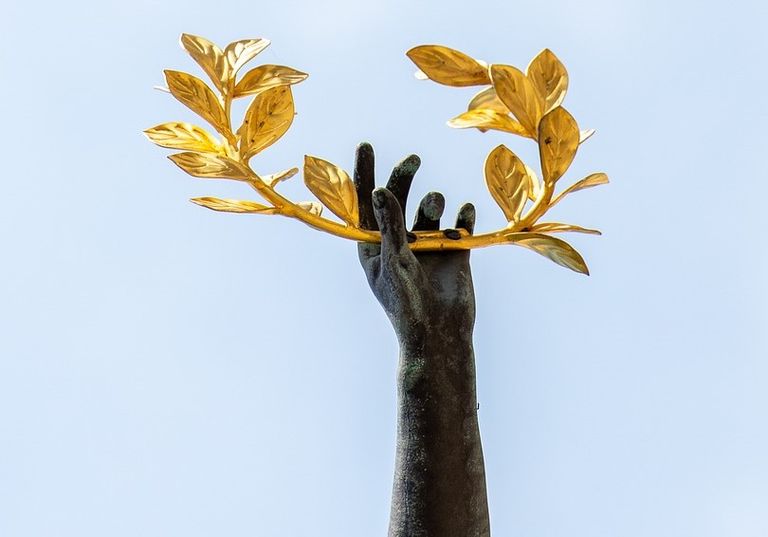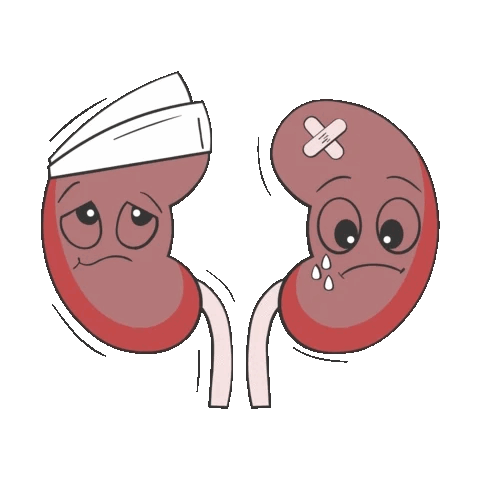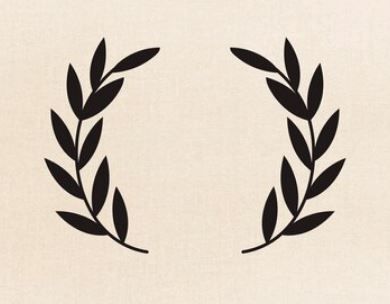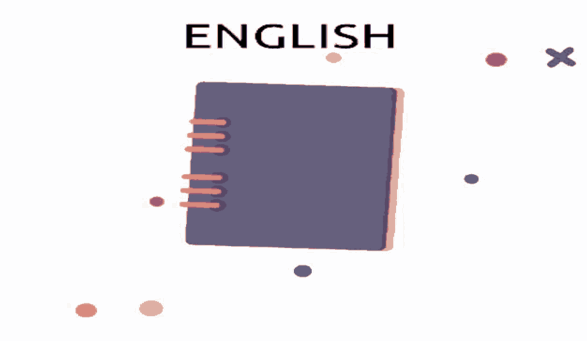
Fuente/Source

Fuente
Es hora de encender las velas de mi espacio virtual...
En cuanto al cine clásico, hay muchas películas que me gustan y que por eso las he visto más de una vez. Una de ellas es Ben Hur, un film de 1959, ganador de 11 premios de la Academia y protagonizado por Charlton Heston. Si me lo preguntan, una de las partes que más me gusta y recuerdo de este argumento es la carrera del príncipe Judah Ben Hur y el tribuno Messala.
La coronación con un tejido de ramas y hojas de laurel como símbolo de honor y premiación al ganador por parte de Poncio Pilatos, es una de las escenas más icónicas y recordadas, justamente por lo que esta implica, ya que la victoria consecuente al esfuerzo y la disciplina son premiadas. Así, como este relato llevado al cine, también existen historias reales que, aunque no nos pertenecen del todo, las llevamos en el corazón como si fueran propias, y la historia de este relato es una de esas porque la recuerdo con claridad, como si cada detalle hubiese quedado grabado en mí para siempre porque fue una paciente de la que estuve pendiente de su gestación y atendí su parto complicado debido a que ella presentaba una dolencia crónica, podría decirse que mortal, ya que tenía insuficiencia y todavía no encontraban un donante compatible para ella, por eso, se convirtió en una visitante frecuente a la sala de hemodiálisis para compensar lo que sus riñones enfermos no podían.

Fuente
Llegó al hospital un día de octubre del año pasado, con los ojos cargados de miedo no solo porque la prueba de embarazo que se realizó salió positiva y su nefrólogo de cabecera le entregó una transferencia a consultorio... pero, aunque todo al inicio parecía nefasto y solo malas noticias hasta lo que giraba en torno a su maternidad presente y futura, en su corazón había una lucha que la empujaba a seguir adelante a través de la determinación. Eso me sorprendió en ella porque había pasado años luchando contra una enfermedad que había puesto su vida en pausa, como si alguien le hubiese arrebatado el control de su destino.
Era joven, demasiado como para resignarse a vivir conectada a una máquina que hacía lo que sus riñones no podían. Recuerdo que, incluso en sus peores días, siempre encontraba un motivo para sonreír, aunque fuera pequeño, pero detrás de esa sonrisa, había un dolor profundo, un cansancio físico y emocional que pocos podían entender. Sus sueños, decía ella cuando me visitaba en mi consultorio para el control gestacional, estaban guardados en una caja esperando a que su cuerpo pudiera volver a alcanzarlos.
El día en que le confirmaron que había un donante compatible fue como si todo el aire del hospital cambiara. Lo sentí en ella, lo sentí en mí y en todo el equipo médico. Sabíamos que esto no era el final del camino, sino el inicio de una nueva etapa, una que traía consigo nuevas esperanzas, pero también nuevos retos. El trasplante de riñón no era una cura mágica y ella lo sabía porque tendría que enfrentarse a un régimen estricto de medicamentos inmunosupresores para evitar el rechazo del órgano, además de constantes controles médicos, pero por primera vez en años, la palabra oportunidad tenía un significado real para mi paciente.
Hace dos días fue su cirugía de trasplante. Fui a verla antes de que la ingresaran al quirófano, estaba tranquila, o al menos eso aparentaba. Antes de entrar me tomó de la mano y me dijo algo que nunca olvidaré: “No sé cómo será mi vida después de esto, pero al menos sé que puedo empezar a soñarla de nuevo, Ari”. Esa frase me acompañó durante todo el tiempo que estuve en la sala de espera junto a su esposo y su pequeño hijo esperando noticias mientras el equipo médico trabajaba con una precisión casi milagrosa para darle a su cuerpo una segunda oportunidad.
Hoy en la mañana me acerqué al área de trasplantes y cuidados críticos para saber sobre su estado. Por las enfermeras me enteré que la cirugía había salido bien, que, aunque lenta no estuvo exenta de complicaciones que se pudieron resolver porque parecía que su cuerpo quería rendirse, pero su espíritu nunca lo hizo. Me permitieron entrar a verla un corto momento y salí contento por lo que vi. No dejé que hable, aunque sí me reconoció, solo le dije que cuando reciba el alta médica, debe seguir las indicaciones médicas con mucha más fuerza disciplina que la que tenía y obtenía en la sala de diálisis porque debe aprender a vivir con su nuevo compañero: un órgano que alguien, en un acto de generosidad inmensa, le había regalado.
Su sonrisa me mostró una luz diferente, un brillo que no se explicaba solo por el éxito del trasplante, sino por el hecho de que ella había recuperado algo mucho más valioso: la posibilidad de vivir sin cadenas, de soñar sin límites, aunque estos por naturaleza existieran porque, aunque los inmunosupresores forman parte de su rutina diaria, sé que ella no los verá como una carga, sino como un recordatorio de todo lo que ha logrado porque ya no caminará sintiéndose agotada, sino que disfrutará mucho más de su familia para cada día volver a planear un futuro que antes parecía inalcanzable. Sin duda, la vida es frágil, pero también dura como el diamante porque cada día que podemos respirar se trata de una oportunidad para empezar de nuevo, ya que la fuerza de alguien que lucha por vivir puede ser un faro de esperanza para todos los que tenemos la fortuna de acompañar ese viaje escuchando y compartiendo una nueva victoria ganada.

Fuente
La victoria es un concepto que evoca fuerza, logro y superación, pero al mismo tiempo, tiene un significado tan personal y diverso como las personas que la experimentan. No siempre es el trofeo al final de una competencia ni el reconocimiento público por un gran logro. La victoria, en su esencia, es íntima, a veces silenciosa y puede estar oculta en los detalles más pequeños de la vida cotidiana. Para algunos, esta implica un superar el profundo miedo, como hablar en público o simplemente levantarse de la cama en días donde todo parece oscuro. Para otros, puede ser lograr un sueño largamente anhelado: graduarse, conseguir un empleo deseado o formar una familia. Hay quienes encuentran su victoria en la reconciliación, en sanar una relación rota o en perdonarse a sí mismos por errores pasados. En cada uno de estos casos, la victoria no tiene una forma única ni se mide con las mismas reglas.
La palabra en sí misma implica un triunfo, pero no necesariamente sobre alguien más. A veces, el único adversario es uno mismo: nuestras inseguridades, nuestros miedos, nuestras dudas, y es en esos momentos que ganar no es demostrarle algo al mundo algo con orgullo, sino demostrarte a ti mismo que eres capaz, que has crecido, que has avanzado. Podemos encontrar diferentes tipos de victoria en la vida: Está la victoria externa, aquella que otros reconocen y celebran contigo, estas suelen ser visibles, como un premio, un título o una meta alcanzada en el ámbito profesional o académico, pero está también la victoria interna, quizás la más significativa, porque es esa que nadie más puede ver ni comprender en su totalidad, sobre todo porque se trata de la calma que sientes después de años de tormenta, la paz que te inunda al aceptar quién eres, la valentía de seguir adelante cuando parecía que todo estaba perdido.
Sí, también existen victorias compartidas, como cuando un equipo trabaja unido para alcanzar un objetivo común, y hay victorias solitarias, esas que solo tú sabes cuánto costaron. Algunas llegan de manera inesperada, fruto de la casualidad o del destino, y otras se construyen con esfuerzo, paciencia y lágrimas, por eso es que en la vida, aprender a reconocer nuestras victorias es tan importante como buscarlas. No todas serán grandiosas ni cambiarán el curso de nuestra existencia, pero todas tienen su valor y reconocer una victoria es recordarnos que, a pesar de los desafíos, seguimos avanzando.
Estoy convencido de que la mayor enseñanza que nos deja la victoria es que no siempre se trata de ganar, sino de aprender en el proceso, de encontrar sentido en el camino, de darnos cuenta de que cada pequeña conquista nos acerca a ser la mejor versión de nosotros mismos porque la victoria no es el final de un viaje, sino un momento que celebra el esfuerzo, la dedicación y la perseverancia en la travesía sin que esto signifique que debamos olvidar el dolor y la oscuridad que tanto malestar nos causó, tal como le dije a mi paciente antes de salir de la sala de cuidados intensivos en donde está recluida por el momento:
"El final de este proceso que es tu victoria personal y que te permitirá vivir una nueva etapa, es lo que realmente importa".

A quienes leyeron y también a quienes no, tengan un excelente día, lleno de paz y bendición.
Un abrazo virtual.
—Ezequiel ©

It's time to light the candles in my virtual space...
As for classic cinema, there are many films that I like and that is why I have seen them more than once. One of them is Ben Hur, a 1959 film, winner of 11 Academy Awards and starring Charlton Heston. If you ask me, one of the parts that I like and remember the most from this plot is the race of Prince Judah Ben Hur and the tribune Messala.
The coronation with a woven laurel branch and leaf as a symbol of honor and award to the winner by Pontius Pilate is one of the most iconic and remembered scenes, precisely because of what it implies, since the victory resulting from effort and discipline is rewarded. Thus, like this story brought to the cinema, there are also real stories that, although they do not belong to us entirely, we carry them in our hearts as if they were our own, and the story of this story is one of those because I remember it clearly, as if every detail had been recorded in me forever because she was a patient whose pregnancy I was aware of and I attended her complicated birth because she had a chronic illness, one could say fatal, since she had failure and they still had not found a compatible donor for her, so she became a frequent visitor to the hemodialysis room to compensate for what her sick kidneys could not.
She arrived at the hospital one day in October last year, with her eyes filled with fear, not only because the pregnancy test she took came out positive and her primary nephrologist had transferred her to the doctor's office... but, although everything at the beginning seemed disastrous and only bad news, even what revolved around her present and future motherhood, in her heart there was a fight that pushed her to move forward through determination. That surprised me because she had spent years fighting against a disease that had put her life on hold, as if someone had taken control of her destiny from her.
She was young, too young to resign herself to living connected to a machine that did what her kidneys could not. I remember that, even on her worst days, she always found a reason to smile, even if it was small, but behind that smile, there was a deep pain, a physical and emotional exhaustion that few could understand. Her dreams, she said when she visited me in my office for the pregnancy check, were kept in a box waiting for her body to reach them again.
The day she was told that there was a compatible donor, it was like the whole atmosphere in the hospital changed. I felt it in her, I felt it in myself and in the entire medical team. We knew that this was not the end of the road, but the beginning of a new stage, one that brought with it new hopes, but also new challenges. A kidney transplant was not a magic cure and she knew this because she would have to face a strict regimen of immunosuppressive drugs to prevent rejection of the organ, in addition to constant medical checks, but for the first time in years, the word opportunity had a real meaning for my patient.
Two days ago was her transplant surgery. I went to see her before she was admitted to the operating room, she was calm, or at least that's what she seemed. Before entering she took my hand and said something I will never forget: "I don't know what my life will be like after this, but at least I know I can start dreaming about it again, Ari." That phrase accompanied me the whole time I was in the waiting room with her husband and her little son waiting for news while the medical team worked with almost miraculous precision to give her body a second chance.
This morning I went to the transplant and critical care area to find out about her condition. From the nurses I learned that the surgery had gone well, that, although slow, it was not without complications that were resolved because it seemed like her body wanted to give up, but her spirit never did. They allowed me to go in to see her for a short moment and I left happy with what I saw. I didn't let her speak, although she did acknowledge me. I only told her that when she is discharged from the hospital, she must follow the medical instructions with much more discipline than she had and obtained in the dialysis room because she must learn to live with her new companion: an organ that someone, in an act of immense generosity, had given her.
Her smile showed me a different light, a glow that could not be explained only by the success of the transplant, but by the fact that she had recovered something much more valuable: the possibility of living without chains, of dreaming without limits, even if these existed by nature because, although immunosuppressants are part of her daily routine, I know that she will not see them as a burden, but as a reminder of everything she has achieved because she will no longer walk feeling exhausted, but will enjoy her family much more so that each day she can plan a future that once seemed unattainable. Life is certainly fragile, but it is also as hard as a diamond because every day we can breathe is an opportunity to start over, as the strength of someone who fights to live can be a beacon of hope for all of us who are fortunate enough to accompany that journey by listening and sharing a new victory won.
Victory is a concept that evokes strength, achievement and overcoming, but at the same time, it has a meaning as personal and diverse as the people who experience it. It is not always the trophy at the end of a competition or public recognition for a great achievement. Victory, in its essence, is intimate, sometimes silent and can be hidden in the smallest details of everyday life. For some, it involves overcoming deep fear, such as speaking in public or simply getting out of bed on days where everything seems dark. For others, it can be achieving a long-awaited dream: graduating, getting a desired job or starting a family. There are those who find their victory in reconciliation, in healing a broken relationship or in forgiving themselves for past mistakes. In each of these cases, victory does not have a unique form nor is it measured by the same rules.
The word itself implies a triumph, but not necessarily over someone else. Sometimes, the only adversary is oneself: our insecurities, our fears, our doubts, and it is in those moments that winning is not about showing something to the world with pride, but about showing yourself that you are capable, that you have grown, that you have advanced. We can find different types of victory in life: There is the external victory, the one that others recognize and celebrate with you, these are usually visible, like a prize, a title or a goal achieved in the professional or academic field, but there is also the internal victory, perhaps the most significant, because it is the one that no one else can see or fully understand, especially because it is about the calm you feel after years of storm, the peace that floods over you when you accept who you are, the courage to move forward when it seemed that everything was lost.
Yes, there are also shared victories, like when a team works together to achieve a common goal, and there are solitary victories, those that only you know how much they cost. Some come unexpectedly, as a result of chance or fate, and others are built with effort, patience and tears, which is why in life, learning to recognize our victories is as important as seeking them. Not all of them will be great or change the course of our existence, but they all have their value and recognizing a victory is reminding us that, despite the challenges, we continue to move forward.
I am convinced that the greatest lesson that victory leaves us is that it is not always about winning, but about learning in the process, about finding meaning along the way, about realizing that each small conquest brings us closer to being the best version of ourselves because victory is not the end of a journey, but a moment that celebrates the effort, dedication and perseverance in the journey without this meaning that we should forget the pain and darkness that caused us so much discomfort, just as I told my patient before leaving the intensive care room where she is currently confined:
"The end of this process, which is your personal victory and which will allow you to live a new stage, is what really matters."

To those who read and also to those who didn't, have a wonderful day, full of peace and blessings.
A virtual hug.
—Ezequiel ©
1 votes
1 votes
Acá en Colombia la película de Ben Hur suelen dar en Semana Santa, sí es un clásico, un clásico muy hermoso, doctor, a mí también me gusta mucho, en mi caso, la escena que más me impacta y recuerdo siempre con gran cariño es cuando Ben Hur recibe ayuda por parte de Jesús cuando le dio agua para beber cuando estaba siendo llevado a las galeras romanas como sentencia, y después la cúspide de esa escena se vuelve a repetir cuando a nuestro Señor lo llevaban a la cruz y Ben Hur se acerca a darle agua y ahí es cuando lo reconoce... ese momento también me hace llorar siempre que veo la película, pero para el caso que nos cuenta, claro que queda perfecto el momento en que Pilatos lo corona como ganador en la carrera ante Messala.
Siento que nos ha contado parte de su historia vista desde otro ángulo, doctor Ezequiel, desde los ojos y la situación de su paciente, y creo que por eso es que con ella se mostró más empático porque el proceso de la búsqueda de trasplantes no es nada fácil y usted ya lo ha vivido y sabe que algunos pacientes terminan falleciendo porque no hallan donantes, o porque la justicia brilla por su ausencia en casos en donde la prioridad no es tomada en cuenta, sino el dinero.
No le miento, doctor, me puse a llorar con esta historia, debe ser que estoy bastante susceptible, pero qué hermoso relato de vida, un storytelling como suelen decirle en algunos lugares. Cuando caemos en desgracia, pero trabajamos con disciplina para salir de ese pozo oscuro del señalamiento y el olvido del resto, tarde o temprano obtendremos la victoria, una victoria que es interna, pero que se vuelve externa también porque la compartimos con otros que se interesan en nuestra historia y nos tienden una mano y entregan herramientas o armas para luchar una carrera peligrosa que, aunque agreste el camino en donde podemos morir, llegaremos a la meta siempre y cuando seamos disciplinados y la voluntad de Dios esté presente para darnos la ganancia.
Es duro atravesar cosas complejas, pero como bien le dio a entender a su paciente cuando fue a visitarla en el área de trasplantes: la victoria personal es lo que realmente importa.
Muchas gracias por el escrito de hoy, doctor Ezequiel, siempre es un placer leerlo por acá. Saludos y un gran abrazo para Konstanze, para usted, para sus hijos y para toda la familia que los acompaña.
Dios los bendiga grandemente 🤗🤗